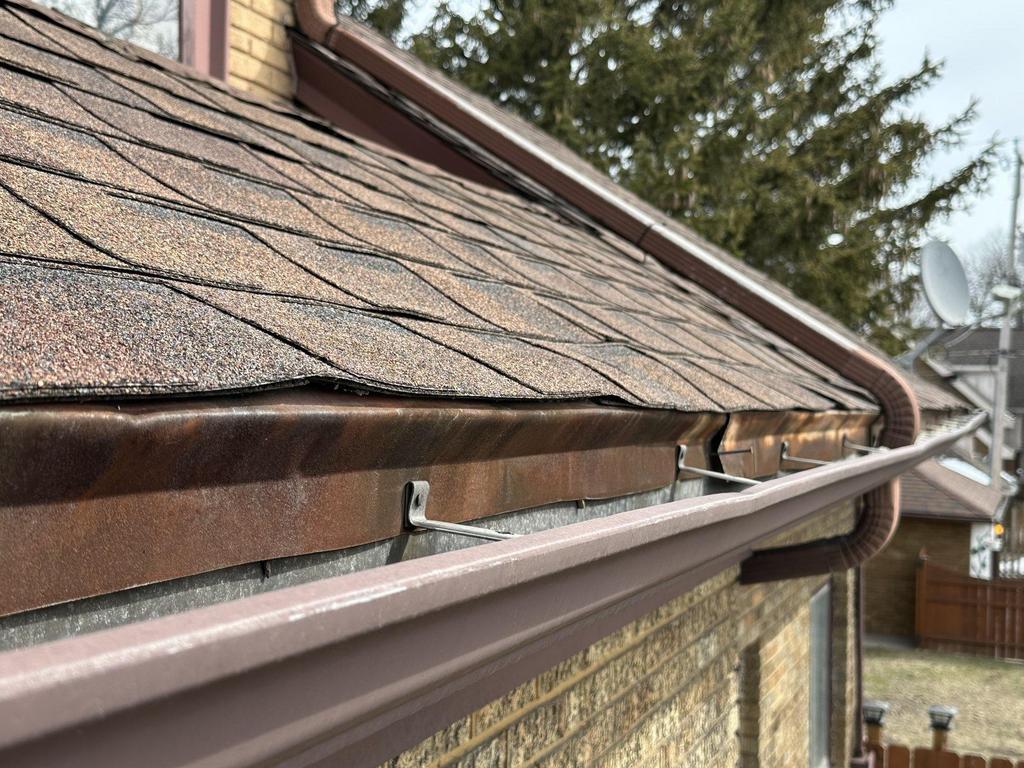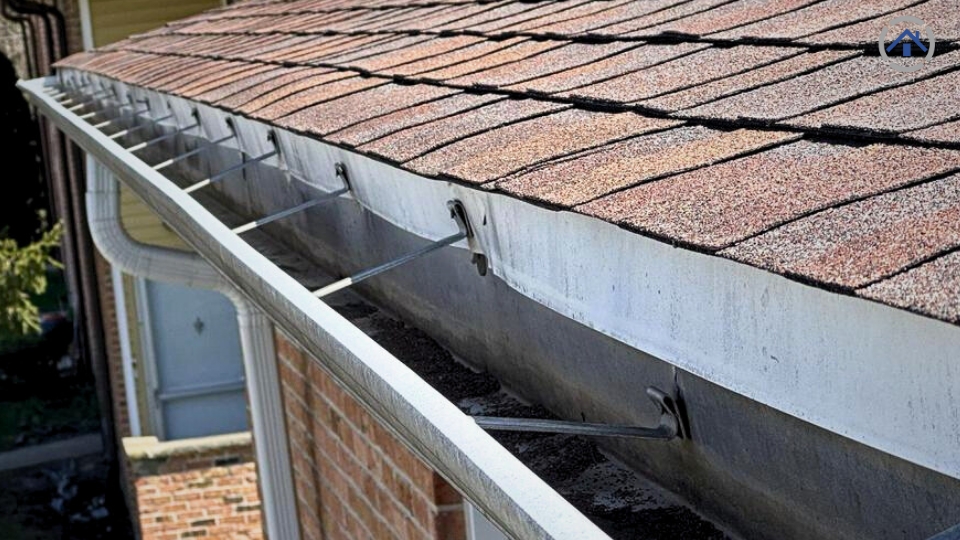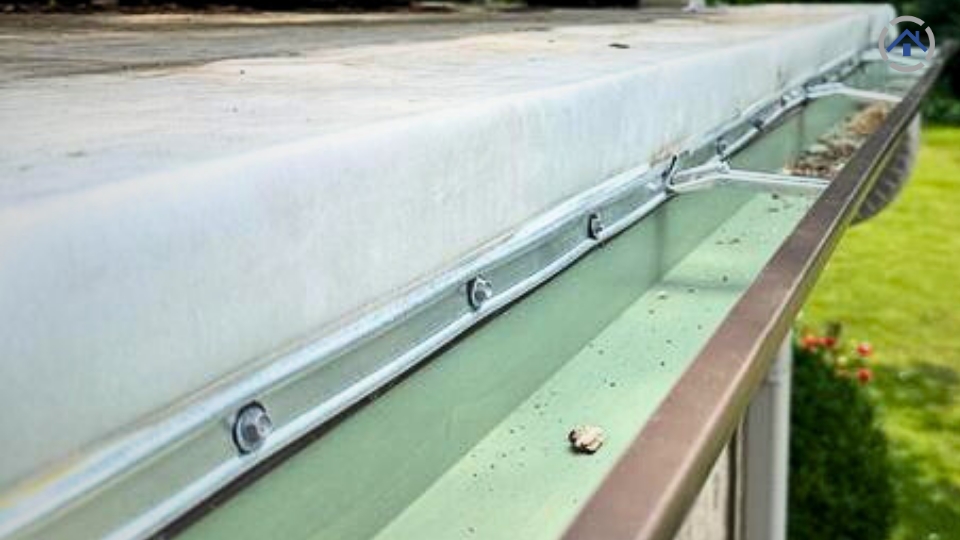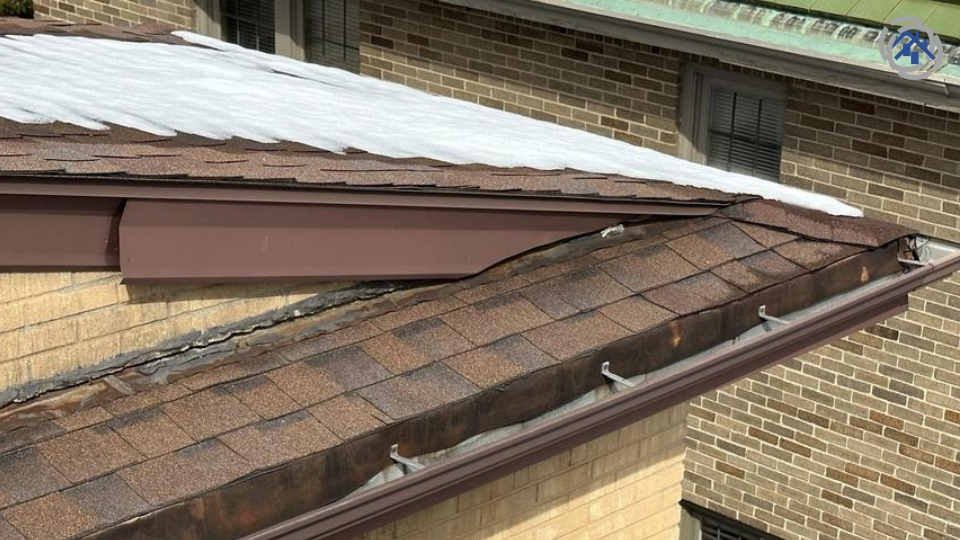
When it comes to home maintenance, ensuring the longevity and functionality of key components is crucial. Two of these critical components are the roof and gutters. The roof protects your home from the elements, while the gutters play a vital role in channeling rainwater away from the foundation, preventing water damage and erosion. Responsible homeowners often question, do I need to replace my gutters when I do my roof?
This comprehensive blog post will delve into this commonly asked question and provide valuable insights to help you make an informed decision. While the short answer is no, several factors may lead you to replace gutters with the roof. By understanding these factors, you can make a well-informed choice that ensures the optimal performance and longevity of your home's roofing and gutter system.

Before delving into why you might need to replace your gutters when replacing the roof, it's essential to understand the concept of a gutter apron. The gutter apron is a crucial component that provides a smooth transition between the roof and the gutters. It helps prevent water from seeping behind the gutters and causing damage to your home's foundation.
The primary purpose of a gutter apron is to guide water from the edge of the roof directly into the gutters. It acts as a barrier, preventing water from flowing behind the gutters and onto the fascia boards or down the house's exterior walls. By directing water into the gutters, it helps to protect the foundation of the house from water damage.
The gutter apron is typically installed during the initial installation of the roof. It is positioned along the eaves, underneath the roofing material, and over the fascia board. The apron is usually made of metal, such as aluminum or galvanized steel, and comes in various widths to accommodate different roof sizes.
The design of a gutter apron consists of a horizontal flat section that extends over the fascia board and a vertical flange that extends down into the gutter. The horizontal section helps to create a smooth transition between the roof and the gutters, while the vertical flange directs water into the gutter system.
The gutter apron offers several benefits, including:
When replacing your roof, it is often recommended to inspect the condition of the gutter apron. If the existing gutter apron is damaged, corroded, or improperly installed, it may not effectively protect your home from water damage. In such cases, replacing the gutter apron along with the roof can ensure proper functionality and long-term protection.
Remember, the gutter apron is just one component of a well-functioning gutter system. Regular maintenance and cleaning of gutters are essential to ensure proper water drainage and prevent issues like clogs and overflowing.

One of the primary reasons to replace your gutters when replacing your roof is the gutter apron itself. When the time comes to change the gutter apron, it is necessary to remove both the gutters and the roof. The gutter apron cannot be replaced independently, meaning that if you replace your roof separately, the gutter apron will remain unchanged. This can compromise its functionality and potentially lead to water damage over time.
During the process of replacing a roof, the existing shingles are torn off, and the underlying structure is inspected for any issues. New shingles are then installed. However, this roofing process can potentially cause damage to the existing gutters or alter their proper pitch. If the gutters are not replaced or repaired accordingly, they may fail to function optimally, leading to issues such as inadequate drainage and potential water damage.
In some cases, when replacing a roof, contractors may determine that the decking (e.g., OSB boards or 2"x6" boards) needs to be replaced as well. When this happens, it is highly likely that the gutters will have to be removed to facilitate the decking replacement. Therefore, if your roof requires new decking, it may be practical to replace the gutters simultaneously to ensure a seamless and efficient installation process.
Mansard roofs pose a unique challenge when it comes to roofing and gutter replacement. Unlike most roofs, mansard roofs require the removal of gutters during the installation of shingles. The top row of shingles on the mansard slope tucks under the gutters on the lower slope, making it necessary to remove the gutters to properly nail the top row of shingles. Therefore, if you have a mansard roof, it becomes imperative to replace the gutters when replacing the roof.
If your gutters are already old and showing signs of significant wear and tear, it may be wise to replace them when replacing your roof. Aging gutters can develop leaks, rust, or structural issues that affect their functionality. By replacing them along with the roof, you ensure that your entire roofing system is in optimal condition, reducing the risk of future problems.
Replacing your roof provides an opportunity to enhance the overall appearance and cohesion of your home's exterior. If your gutters are mismatched, outdated, or incompatible with the new roofing material or color, replacing them can help create a more cohesive and visually appealing look. Coordinating the roof and gutter Cost
While replacing your roof and gutters together may require a larger upfront investment, it can be more cost-effective and convenient in the long run. Combining these projects allows you to streamline the construction process, potentially saving on labor costs and minimizing disruptions to your daily life. It can also prevent the need for separate roofing and gutter installation projects, which may incur additional expenses.
By replacing your gutters simultaneously with your roof, you ensure that both components work together seamlessly. Properly functioning gutters are essential for effective water management, preventing water damage to your roof, siding, foundation, and landscaping. New gutters installed during a roof replacement can provide improved drainage, better protection against water infiltration, and increased durability, enhancing the longevity of your entire roofing system.

While it is not mandatory to replace your gutters when replacing your roof, there are compelling reasons to consider doing so. The need to replace the gutter apron, potential damage during the roofing process, decking replacement requirements, mansard roof considerations, gutter condition, aesthetics, cost efficiency, and enhanced functionality all contribute to the decision-making process.
When planning a roof replacement, it is recommended to consult with roofing professionals who can assess the condition of your gutters and provide expert advice tailored to your specific situation. They can help you determine if replacing the gutters along with the roof is the most appropriate choice based on your home's unique characteristics and your long-term maintenance goals.
Remember, a well-maintained roof and gutter system are crucial for the protection and integrity of your home. By making informed decisions and investing in regular maintenance and timely replacements, you can ensure the longevity and performance of these vital components, providing you with peace of mind and a secure living environment.